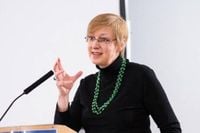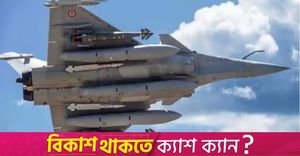As the world reflects on the end of World War II, a conference titled "Übergänge – Brüche – Kontinuitäten. 1945 in der Region" will take place on May 7 and 8, 2025, at the Kongresssaal Karel van Miert of the Festung Franzensfeste. Organized by the Zentrum für Regionalgeschichte, the Italian War Museum in Rovereto, and the Landesmuseum Festung Franzensfeste, this event aims to explore the complexities of how wars conclude and the transitions from conflict to peace.
The year 1945 marked a significant turning point in history, as it witnessed the end of a conflict that began on September 1, 1939, with Germany's invasion of Poland. This war claimed an estimated 36 million lives across Europe alone, a staggering statistic that continues to resonate even 80 years later. Historian Tatjana Tönsmeyer, a professor at the Bergische Universität Wuppertal, emphasizes that in countries previously occupied by Germany, civilian casualties often outnumbered military ones. "In the consideration of this large number, it is often forgotten, even 80 years after the end of the world war, that there were more civilian than military victims in the formerly German-occupied countries," she stated.
The conference will feature keynote speeches by prominent historians Hannes Leidinger from the University of Vienna and Gustavo Corni from the University of Trento, who will discuss the situation at the end of the war in Austria and Italy. Their insights will provide a broader national and international context to the events that unfolded during this tumultuous time.
In addition to the keynote addresses, the conference will showcase contributions from scholars focusing on the last year of the war in the Euregio Tirol region. Topics will encompass various aspects of the final year of conflict, including the existence of Nazi camps in Tyrol, the everyday experiences of those living through the war, resistance movements, persecution, denazification, and the formation of memory cultures post-1945.
"What worldviews and visions, what strategies and practices, what continuities and breaks are hidden behind these developments?" This question encapsulates the essence of the conference, as it seeks to understand the transformation processes that occurred during this transitional period. The political, social, and cultural conditions of the last year of the war, as well as the early post-war years, will be examined in depth.
On the evening of May 7, Tönsmeyer will read from her book detailing the experiences of those living under German occupation. She highlights the fear and uncertainty that permeated daily life during this period. "Fear and insecurity, constant worry, and tension characterized everyday life. Even those who were spared by the Germans knew what awaited them and feared for themselves and their loved ones," she explained.
Following her reading, Tönsmeyer will engage in a discussion with Helge Lindh, a member of the Bundestag from the SPD, about the relevance and political dimensions of remembrance today. This dialogue will delve into the significance of acknowledging the past and its implications for contemporary society.
The conference is free and open to the public, requiring no prior registration. Additionally, translation services will be provided for presentations in both German and Italian, ensuring accessibility for all attendees.
As the world grapples with the legacies of conflict and the importance of historical memory, events like this conference serve as vital platforms for reflection and understanding. The Zentrum für Regionalgeschichte continues to lead the way in researching these critical issues, demonstrating that the themes of war and peace remain ever relevant.
Information about the conference can be found on the Zentrum für Regionalgeschichte's website: www.regionalgeschichte.it. This event not only commemorates a significant historical moment but also fosters dialogue about the lessons learned and the ongoing challenges of transitioning from war to peace.
As we look back at the end of World War II, it is crucial to remember the millions who suffered under occupation and the profound impacts of war on civilian populations. The discussions and research presented at the conference will contribute to a deeper understanding of these themes, ensuring that the memories of those who lived through this dark chapter of history are honored and remembered.




